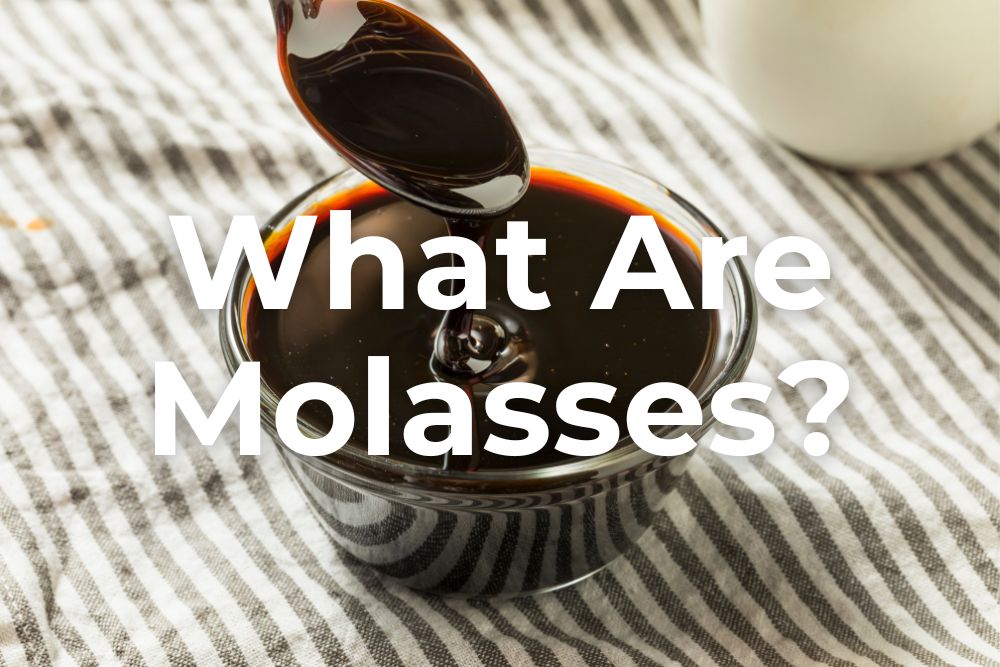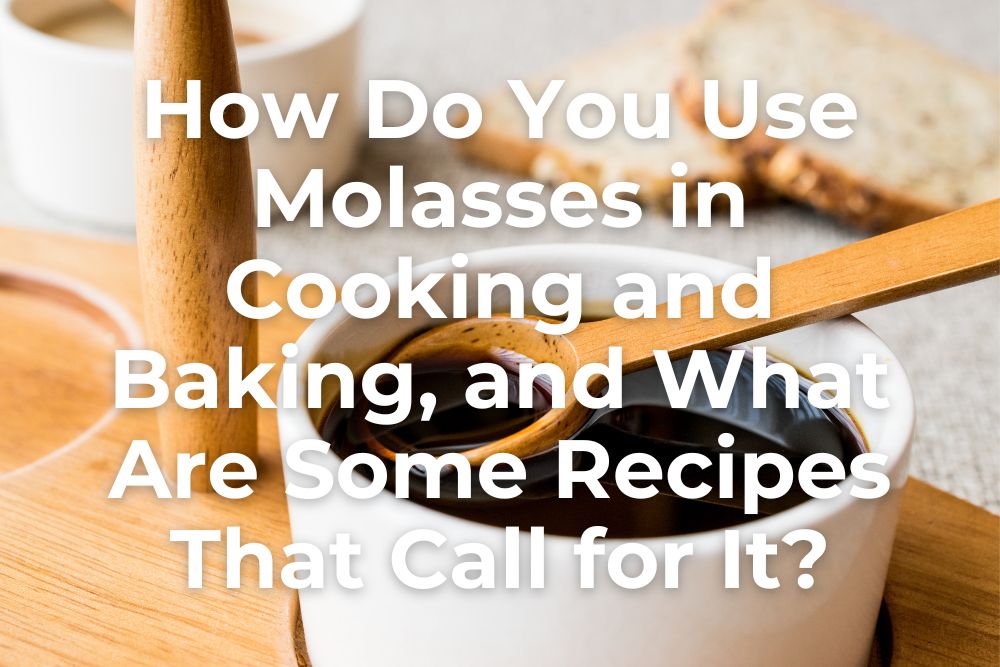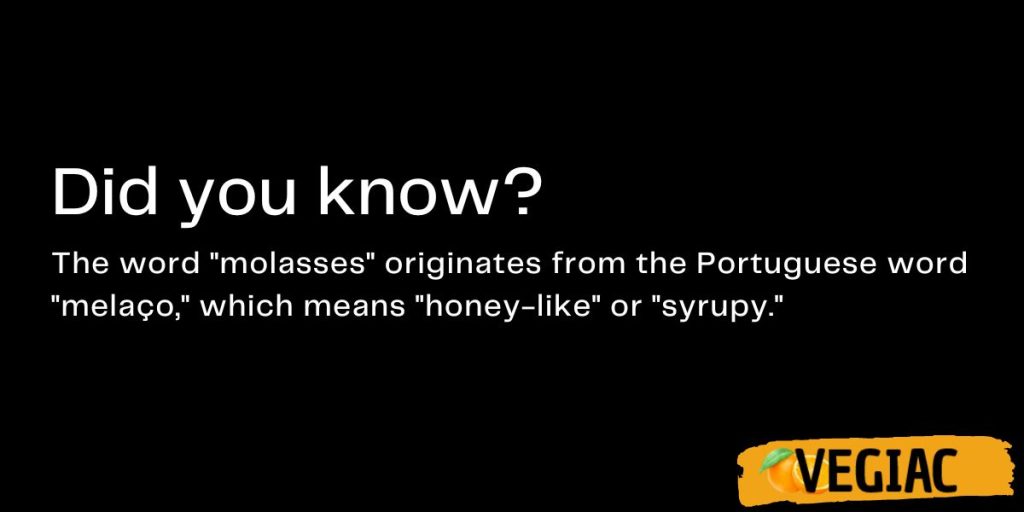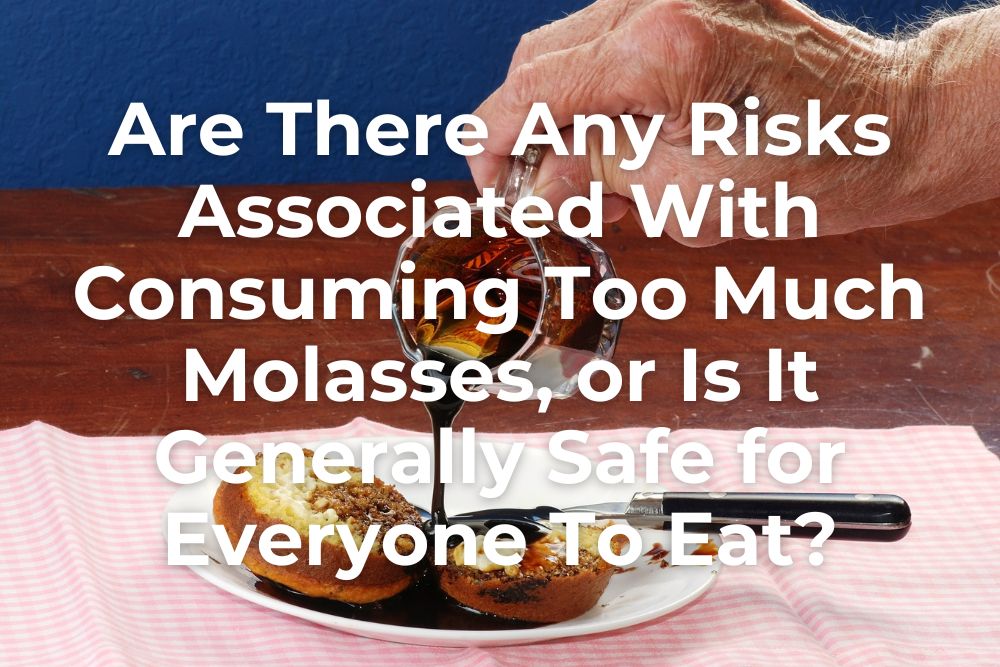Molasses is a sugary syrup made from either sugar cane or sugar beets. It has a deep, rich color and a robust flavor that sets it apart. You may find molasses in many different foods and drinks, and it even has some practical uses in the manufacturing industry.
The word “molasses” originates from the Portuguese word “melaço,” which means “honey-like” or “syrupy.” However, is molasses safe for those who have gluten sensitivity.
Those adhering to a gluten-free diet can safely consume molasses. But certain molasses brands may be manufactured in facilities that also process wheat, so it’s crucial to read the label to verify sure the product is certified gluten-free.
Molasses is a versatile sweetener that may be used in desserts, breakfast foods like pancakes and waffles, and even savory dishes like baked beans. Likewise, it can be used as a sugar substitute in hot drinks.
What Are Molasses?

Sugar cane juice or beet juice is boiled down to make molasses. Crystallization increases as boiling time increases, and the deeper, more powerful flavor is a result of the longer boiling time. Light molasses, dark molasses, and blackstrap molasses are the three primary kinds. The first boiled sugar cane or beet juice yields the lightest molasses, which is also the most subtle in flavor.
Dark molasses, which results from a second boiling, is more concentrated and flavorful. Third-boiling molasses, from which blackstrap is formed, is known for its intense flavor. Blackstrap molasses also has more nutrients than regular or dark molasses.
How Do You Use Molasses in Cooking and Baking, and What Are Some Recipes That Call for It?

While it’s most commonly associated with baking, molasses can actually be used in all sorts of recipes, both sweet and savory. Keep reading for a comprehensive guide to using molasses in the kitchen.
Molasses Substitutes
If you don’t have molasses on hand, there are a few substitutes you can use. The best substitute for molasses is dark brown sugar, which has a similar flavor and consistency. You can also use honey or maple syrup, although these will change the flavor of your dish somewhat. If you’re making a savory dish, you can also use soy sauce or tamari.
Using Molasses in Baking
Molasses is most commonly used in baking, specifically in recipes for gingerbread, cookies, cakes, and pies. The molasses adds both sweetness and depth of flavor to these recipes. If you’re using molasses in place of another sweetener like honey or maple syrup, you’ll need to use less molasses since it is more concentrated. You should also keep in mind that molasses will make your baked goods darker in color.
Read More >> Is Honey Gluten-Free?
Gluten-Free Recipes That Call for Molasses
There are plenty of delicious gluten-free recipes that call for molasses. One great option is this recipe for gluten-free gingerbread cookies. These cookies are soft and chewy with the perfect amount of spice. Another great option is this recipe for gluten-free oatmeal raisin cookies. These cookies are packed with fiber and protein, making them a great option for breakfast or a snack.
What Are the Nutritional Values of Molasses, and How Does It Compare to Other Sweeteners Like Honey or Sugar?

Minerals and vitamins including iron, calcium, magnesium, and potassium can all be found in molasses. Both vitamin B6 and folate can be found in this in trace concentrations. With just one tablespoon, you can get 10% of your daily iron and 5% of your daily calcium needs met.
Additionally, molasses has antioxidants that are beneficial to your health. These compounds shield cells from potential injury caused by free radicals. When you digest food, or when you’re exposed to things like tobacco smoke or radiation, your body produces free radicals. Muscle glycogen stores can also increase during physical activity.

The antioxidants in molasses may help protect your cells against some chronic diseases, such as heart disease and cancer. In fact, one test-tube study found that molasses extract was able to inhibit the growth of colon cancer cells.
Molasses contains more calories and carbs than other common sweeteners like honey and sugar. However, because it is less sweet than these other sweeteners, you may end up using less of it, which could offset the extra calories.
Are There Any Risks Associated With Consuming Too Much Molasses, or Is It Generally Safe for Everyone To Eat?

Molasses is rich in vitamins and minerals, including iron, calcium, magnesium, potassium, and vitamin B6. It also contains dietary fiber, which can help promote regularity and prevent constipation. Additionally, molasses is a good source of energy and can help improve athletic performance.
Read More >> Is Brown Sugar Gluten-Free?
The Risks of Molasses Consumption
While molasses is generally safe for human consumption, there are some risks associated with eating too much of it. For example, molasses is high in sugar and calories, which can lead to weight gain if consumed in excess.
Additionally, molasses can cause gastrointestinal distress if eaten in large quantities. Finally, molasses may interact with certain medications, so it’s important to talk to your doctor before consuming it if you are taking any prescription or over-the-counter drugs.

